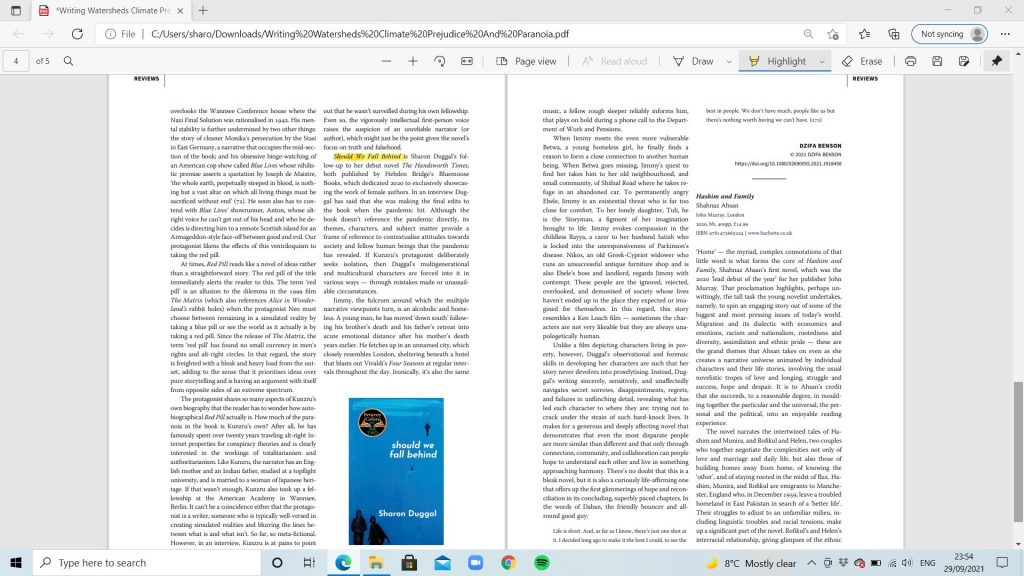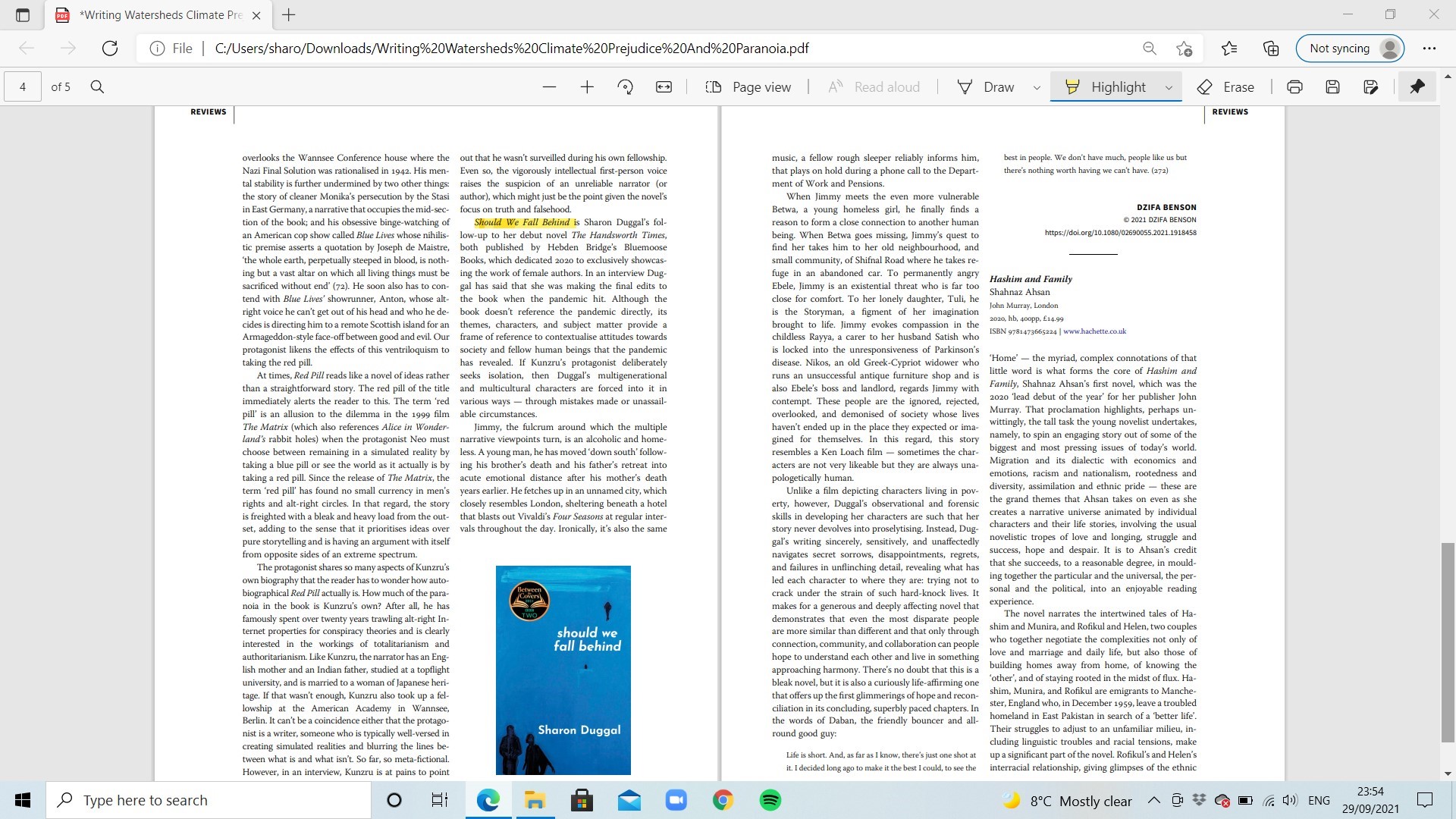Should We Fall Behind is Sharon Duggal’s follow-up to her debut novel The Handsworth Times, both published by Hebden Bridge’s Bluemoose Books, which dedicated to exclusively showcasing the work of female authors. In an interview Duggal has said that she was making the final edits to the book when the pandemic hit. Although the book doesn’t reference the pandemic directly, its themes, characters, and subject matter provide a frame of reference to contextualise attitudes towards society and fellow human beings that the pandemic has revealed. If Kunzru’s protagonist deliberately seeks isolation, then Duggal’s multigenerational and multicultural characters are forced into it in various ways — through mistakes made or unassailable circumstances. Jimmy, the fulcrum around which the multiple narrative viewpoints turn, is an alcoholic and homeless. A young man, he has moved ‘down south’ following his brother’s death and his father’s retreat into acute emotional distance after his mother’s death years earlier. He fetches up in an unnamed city, which closely resembles London, sheltering beneath a hotel that blasts out Vivaldi’s Four Seasons at regular intervals throughout the day. Ironically, it’s also the same music, a fellow rough sleeper reliably informs him, that plays on hold during a phone call to the Department of Work and Pensions. When Jimmy meets the even more vulnerable Betwa, a young homeless girl, he finally finds a reason to form a close connection to another human being. When Betwa goes missing, Jimmy’s quest to find her takes him to her old neighbourhood, and small community, of Shifnal Road where he takes refuge in an abandoned car. To permanently angry Ebele, Jimmy is an existential threat who is far too close for comfort. To her lonely daughter, Tuli, he is the Storyman, a figment of her imagination brought to life. Jimmy evokes compassion in the childless Rayya, a carer to her husband Satish who is locked into the unresponsiveness of Parkinson’s disease. Nikos, an old Greek-Cypriot widower who runs an unsuccessful antique furniture shop and is also Ebele’s boss and landlord, regards Jimmy with contempt. These people are the ignored, rejected, overlooked, and demonised of society whose lives haven’t ended up in the place they expected or imagined for themselves. In this regard, this story resembles a Ken Loach film — sometimes the characters are not very likeable but they are always unapologetically human.
Unlike a film depicting characters living in poverty, however, Duggal’s observational and forensic skills in developing her characters are such that her story never devolves into proselytising. Instead, Duggal’s writing sincerely, sensitively, and unaffectedly navigates secret sorrows, disappointments, regrets, and failures in unflinching detail, revealing what has led each character to where they are: trying not to crack under the strain of such hard-knock lives. It makes for a generous and deeply affecting novel that demonstrates that even the most disparate people are more similar than different and that only through connection, community, and collaboration can people hope to understand each other and live in something approaching harmony. There’s no doubt that this is a bleak novel, but it is also a curiously life-affirming one that offers up the first glimmerings of hope and reconciliation in its concluding, superbly paced chapters. In the words of Daban, the friendly bouncer and all round good guy:
“Life is short. And, as far as I know, there’s just one shot at it. I decided long ago to make it the best I could, to see the best in people. We don’t have much, people like us but there’s nothing worth having we can’t have.”
DZIFA BENSON
© 2021 DZIFA BENSON
https://doi.org/10.1080/02690055.2021.1918458

International Contemporary Writing – issue 107


